Cards In This Set
| Front | Back |
|
Ideology
The word 'ideology' was coined by the French writer Destut de Tracy to mean the science of ideas. This was during a period in which many academics were seeking to create or espouse a social science. Martin Seliger in Politics and Ideology listed four elements: first, a concept of human nature; second, a theory about how human history has developed and why; third, an analysis of the role of the state as it is and as it should be; and finally, some broad philosophical and policy prescriptions. Most usage of the concept, however, have been negative. Karl Marx argued that all ideas are products of a specific economic and social class system. All thought is socially determined; individuals are not born with all their ideas ready-made, but instead are socialized from birth into a certain pattern of values, beliefs and attitudes depending on their class position in society. 'Being is not determined by consciousness but consciousness by being'. Ideology to Marx was, therefore, a subjective and biased set of ideas and beliefs which reflect the interest of a particular class and which constitute a false consciousness because they are believed to be a true and total picture of the world but they are not. The ruling class spreads its ideology through society by virtue of its ownership and control of the mass media, the political, judicial, military, industrial, education and religious institutions. Marxists claimed to be scientific and objective, therefore, they were not ideological. However, later Marxists, notably Lenin incorporated the notion of an ideology for the working class. Modern liberal thinking, on the other hand, associated ideology with radical or extreme and divisive, 'closed' systems of thought which claim to be absolute truth and which brook opposition, posing the danger of totalitarianism. Due to Liberalism being moderate, open, tolerant and rational, it could be labeled as an ideology. Traditional conservatives, dislike abstract or rigid theories of any sort preferring to adopt a pragmatic and flexible response to practical circumstances, based on experience and historical tradition. |
The End of Ideology
The growth in consensus politics was a result of the main political parties shedding many of their ideological differences and advocating quite similar, centrist politics. The long period of successive New Right Conservatives governments from 1979 established an ideological dominance underpinned by a commitment to a market economy, ongoing privatization and paternalist or even authoritarian social policies which new Labour could not abandon. This has led to some critics alluding to a lack of clear blue water between the Labour and Conservative parties. Liberal writers perceived this middle-of-the-road approach as a provision of freedom and opportunity for all, eliminating the need for radical or extreme ideas. Writers like Daniel Bell argued the post-war West was witnessing 'the end of ideology'. The Francis Fukuyama thesis ran along similar lines, claiming 'the end point of mankind's ideological evolution and the universalisation of western liberal democracy as the final form of human government'.The idea that we are all pragmatists now is not without its difficulties, for without ideology politicians pursue power for its own sake, with no ideology, principles or values at the heart of their political programme. However, it is hard to envisage how they can act at all without some underpinning core of values and goals. |
|
Conservatism is in
essence a reactionary movement. It can be traced back to the late 18th
century, with one of the first statements of conservative principles written by
Edmund Burke in 1790 as a response to those in Britain who supported the French
Revolution in 1789. Later, by the 19th century there was a growth in
the popularity of liberalism, socialism and nationalism, all of which in the
very least were in favour of sweeping reforms, conservatism stood alone in
order to protect the traditional social order. They favoured adjustments rather
than sweeping reforms to maintain the traditional structures. In Iran and
Argentina conservatives have been able to mobilise support for the defence of
traditional values, as well as nationalism.
|
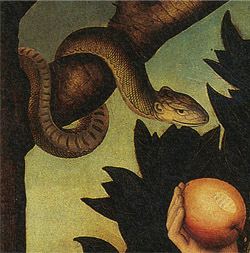 Human Nature – Some conservatives take the Roman Catholic view of original sin and believe that however hard individuals try they can never achieve perfection. Some conservatives also believe that individuals are not driven by reason but by their basic drives and appetites. Individuals cannot be trusted with government, as they will use it solely for self-interests. They also believe human nature is not constant and that it is ever-changing and therefore there should not be a fixed view on human nature. Many conservatives see people as being largely self-seeking and that government is absolutely necessary to control them. |
 Beliefs in Order – Conservatives believe the most basic needs for humans are order and security. They therefore believe humans are prepared to give up freedom and rights in favour of security, hence they support strong government. They traditionally strongly support law and order, rather than civil liberties. Support for Tradition and Preservation – By protecting traditional institutions and values the accumulated wisdom of the ages can be used. As Burke said ‘no generation should be so rash as to consider itself superior to its predecessors. Conservatives favour continuity between the past and the present and avoid radical reforms and changes, |
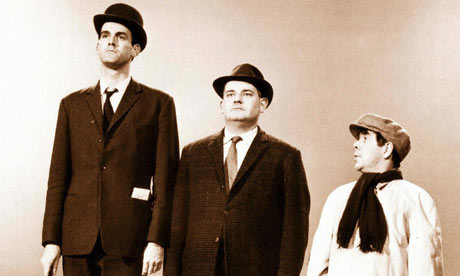 Natural Inequality – Society is naturally divided by hierarchies. These are natural and inevitable. However, conservatives have now adapted to the changes within society particularly since the 1980s, and now view people as individuals rather than part of a hierarchal structure. Redistribution of resources is seen as unnatural and conservatives believe inequality is a positive aspect of competition. |
 Pragmatism – Conservatives take a flexible approach. They reject strongly held ideologies and dogmatic decision making. A conservative should engage with the people and come up with solutions that reflect the traditional community. This was particularly evident in 1951 when the conservatives did not roll back the Labour Party’s nationalisation programme, the creation of the welfare state and new powers for local government. |
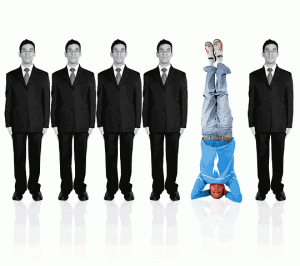 Individualism – The private life has nothing to do with the state and religion, property, family, expenditure and the running of private business should not be interfered with by the government. They believe that individualism works well in a stable environment, with morality, law and order and tradition as a backbone. |
 Sanctity of Property – By the later 19th century conservatives believed that they needed to incorporate the interests of property owners in their policies. Conservatives are resistant common ownership of property and high property taxes. Law and order focuses on protecting and broadening property ownership, such as requiring councils to give preferential terms to tenants in purchasing council owned property (Thatcher referred to this as the creation of a ‘property –owning democracy’). This is on the basis of giving individuals a stake in society and promoting responsibility. |
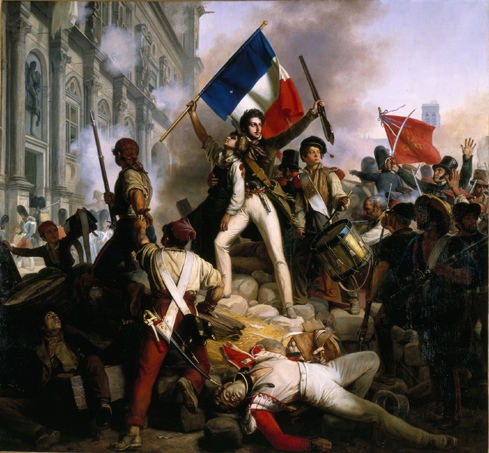 Types of Conservatism Reactionary– It was the French revolution that prompted the reactionary right conservatives to leap in defence of the old European order. They defended traditional religious authority against radical scepticism and liberal secularism. They supported the established monarchy against the republicans and rejected any attempt to dislodge patriarchal authority. Joseph de Maistre believed that authority needed defending to preserve order and that there should be obedience to tradition and religiously sanctified rulers. |
|
Authoritarian –
Focussed upon hierarchal values and autocratic rule. It was dominant in German
where although there was a constitutional development there was
authoritarianism under Bismarck who was determined to protect the authority of
the German Kaiser. In Russia Tsar Nicholas I and his successors held back
constitutional government and parliament refusing to relinquish any power. By
1864 authoritarianism had even been granted the seal of approval by the Pope. Conservative
authoritarianism was not averse to sweeping aside existing governments. At
times they have been fully prepared to support ideologies that would ultimately
become dictatorships. Mussolini and Hitler are two such examples, both of whom
were supported by conservatives in their respective countries, which gave them
the respectability and power to overthrow parliamentary democracy.
|
 Paternalistic – This dates back to Edmund Burke and advocates tradition, property, authority and order, and policies developed purely to handle specific circumstances. Paternalism literally means acting in a fatherly manner, exercising power and authority over others with the intention of providing a beneficial outcome and protecting them from harm. Soft paternalism is based on consent from the bulk of the population, whilst hard paternalism has many characteristics of authoritarianism. Hard paternalists will impose rules without consent. |
 One Nation- Benjamin Disraeli (Prime Minister in 1868) was undoubtedly the founding father of conservative paternalism. He identified that there were two nations in Britain: the rich and the poor. Disraeli believed that something had to be done about the growing social inequality, as he feared that unless action was taken there could be revolution. Reform was therefore the key. It would be difficult for the wealthy and the privileged, but he believed they had an obligation and a responsibility to d something, and ultimately it would be in their interests. The belief was that society was inherently hierarchal, inherently unequal and that the wealthy and the powerful should take on the responsibilities as the price for their privileges. In later years this has been referred to as compassionate conservatism and a means by which to improve the conditions the poor so that they should not prose a threat to the established order. |
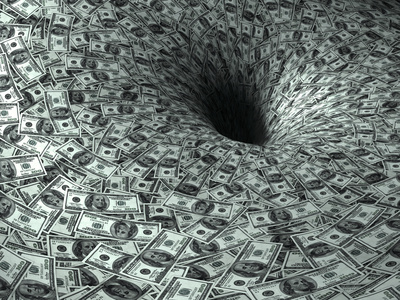 Libertarian – Key theorists include Edmund Burke and Adam Smith, both supporters of economic liberalism. The libertarians believe that the free market is both fair and efficient and that it could be defended on the grounds of tradition, just as the church or the monarchy could. They have a pessimistic view of human nature and believe a strong state is needed to ensure order and authority, and see the free market as being a way in which to ensure social discipline as it regulates economic and social activity. |
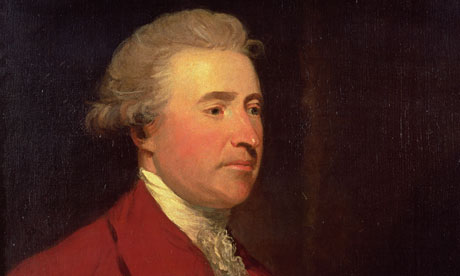 Theorists Thomas Hobbes (1588-1679) - Refer to notes on the state. Edmund Burke (1729-1797) lived through a turbulent period of British and world history: the American War of Independence in 1776 and the French Revolution 13 years later. Burke became a Whig politician, sympathetic towards American independence, but critical of French Revolution. He supported the sanctity of property and supported the American colonists in their campaigning for no tax without representation. He also supported the right of property owning Irish Catholics to be given the vote. He was, however, implacably opposed to the idea that tradition and history should be swept aside as they were cornerstones of all wisdom. He saw that the French were trying to replace this with what he considered abstract ideas of liberty, equality and fraternity. He blamed the French monarchy for what had happened and felt they had failed to make vital changes in order to preserve their position. However, he continued to uphold the right of the French aristocracy, church and monarchy to have their traditional interests preserved and displayed his contempt for democracy and egalitarianism by describing the expansion of the franchise by the new National Assembly as the ‘rule of hairdressers and candle-makers’. Burke believed the government could prevent evil but it was rare that it would promote good. He was broadly in favour of parliamentary reform, and he was in favour of limiting the power of the monarch. He believed that man should be in harmony with his environment and that he had a natural impulse towards self-restraint. This meant that man should have a respect for traditional institutions, customs and values, yet it was acceptable to make reforms in order to deal with specific tensions and issues. |
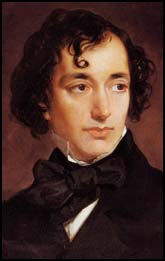 Benjamin Disraeli (1804-1881) was to become what many regard as the great Tory prime minister. He believed that by the 1860s society effectively consisted of three classes. There was the working class that should not exercise power in a direct way, but their interests should be represented. The second class were the wealth creators, capitalists and commercial individuals. They could not be trusted with power because they were driven by self-interest. The third class were the landed and aristocratic individuals, who had always enjoyed privileges. They had to accept responsibility if they were to continue to enjoy these privileges. These were, in effect, the ruling class. Disraeli’s greatest contribution to conservatism was his belief in the organic nature of society this was first noted in his novel Sybil. He believed the government should not rule in the interest of only one class but in the interests of all classes. Unity and the avoidance of social conflict were the key considerations. He believed there needed to be constitutional unity, the maintenance of tradition, the encouragement of patriotism and the availability of welfare for the poor. He influenced greatly later writers such as Kenneth Clarke and Michael Heseltine. |
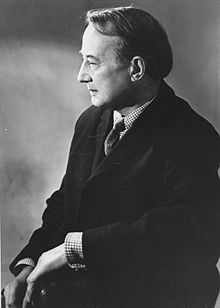 Michael Oackeshott (1901-1990) suggested that conservatism should not have fixed goals. In his book On Being Conservative (1962) he drew the analogy of the state as like being a ship in a sea. The ship has no origin or destination. The role of the government or the captain that commands the ship is simply to keep the ship moving and to look after the passengers. In this respect he believed that conservatives should be pragmatic, they should value tradition, but they should also take notice of the demands of the people. He used the term ‘intimations’ and by this he meant the government should be consistently aware of what the people want and run the state in line with this. Oackeshott believed that if the government had fixed principles and theories then this would be impossible. Central to his beliefs was that government should govern by doing what is right for the citizens, not what they think is right for the citizens. |
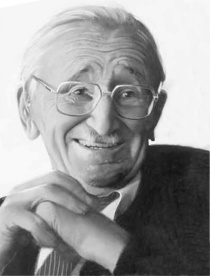 Friedrich Hayek (1899-1992) was an enormous influence on Margaret Thatcher and Keith Joseph. He saw power of the state and trade unions as being the ways in which totalitarianism would come into existence. Hayek pointed at the Soviet Union as the prime culprit, but believed that other countries could replicate this disastrous set of circumstances. Hayek supported traditionalism, individualism, market order and constitutionalism |
|
Conservatism &
Ideology
Traditional conservatism, as far as theorists such as Michael Oakeshott is concerned, should not have any real sense of direction. However, there was a vision of society where there were free individual, broader ownership of shares and industry and a personal responsibility for welfare in the New Right conservatism of Thatcher and Keith Joseph. Traditional conservatives avoid the creation of fixed principles and have tended to be implacably opposed to parties and movement hat have these. Conservatives adapt to change and reflect the dominant political environment of the time. When the conservative’s main opponents in the 19th century were the liberals they had an essentially organic view of society. They wanted the individuals to have a sense of responsibility. When their key opponents in the 20th century were the socialists the conservatives switched to individualism and free market, to offset the collectivist views of socialists. The New Right, however, does have fixed ideas. Central to these is monetarism and the belief that by controlling public spending and currency the whole economy can be manipulated. They had inflexible views towards the welfare state and taxation, both of which they saw as challenging to economic prosperity. They believed that society would be far more prosperous if there was less government regulation. In this respect, perhaps traditional conservatives with a more flexible approach are less ideological than their modern counterparts. The New Right emphasises personal morality and strongly support the return to basic values, such as tradition education, patriotism and the family. They are strong supporters of using prison sentencing as a deterrent, they take a hard line on crime, and they favour greater powers for the police. The New Right are deeply committed to protecting national sovereignty and the unity of Great Britain. They see diversity as a threat to the community and wish to limit immigration but also ensure that the immigrants that remain in Britain adhere to British values. Underlying conservative ideology is the preference of order over liberty, the belief that tradition and existing institutions are more desirable than the unknowns of radical change. |
Conservatism vs.
Ideology
Most ideologies have
some idealised form of society and the focus is on achieving that vision.
Conservatives see this as being a major danger to tradition, as some visionary
image of the future is contrived and somewhat artificial. It also undermines
social stability. On the one hand conservatives do not oppose social
improvement, they believe it should be pursued but only within the context of
traditions and the desires of individuals, rather than basing it on a set of
vague visionary principles. This was the view of Oackeshott.
Due to conservatism
originating as a reactionary force against the French revolution, they have
always viewed ideology as being radical by its very nature. Burke referred to
the revolutionaries as ‘tearing away the decent draperies of life’. They favour
gradual reform, which sustains a sense of continuity.
Conservatives are also
weary of ideologies as it has the potential to bring about some kind of
authoritarian or totalitarian regime. They have witnessed this in fascism,
communism and radical feminism. They see these views as being essentially
tyrannical and ruthless. They also see that revolutionary change could bring
anarchy, as it will inevitably dismantle traditional authority and social
order.
Conservatives do not
have a fixed view of human nature which is another reason as to why they oppose
ideologies. They believe that it is changeable and irrational. Furthermore,
they actually believe ideological views are not often based on human nature;
they simply influence human nature. This implies ideologies are manipulative
and they create societies that are doomed to fail as they are artificial. The
view of Karl Popper was that the communist regime inspired by Marxism were not
natural, as equality and state or common ownership was imposed and therefore
they were doomed to fail.
Conservatives favour
judging the present by the events of the past, this led to the 19th
century writer G. K. Chesterton describing the Tory system as ‘the democracy of
the dead’.
Burke referred to each
generation as ‘life renters’ who have a duty to form partnerships between
‘those who are living, those who are dead and those yet to be born’
|



